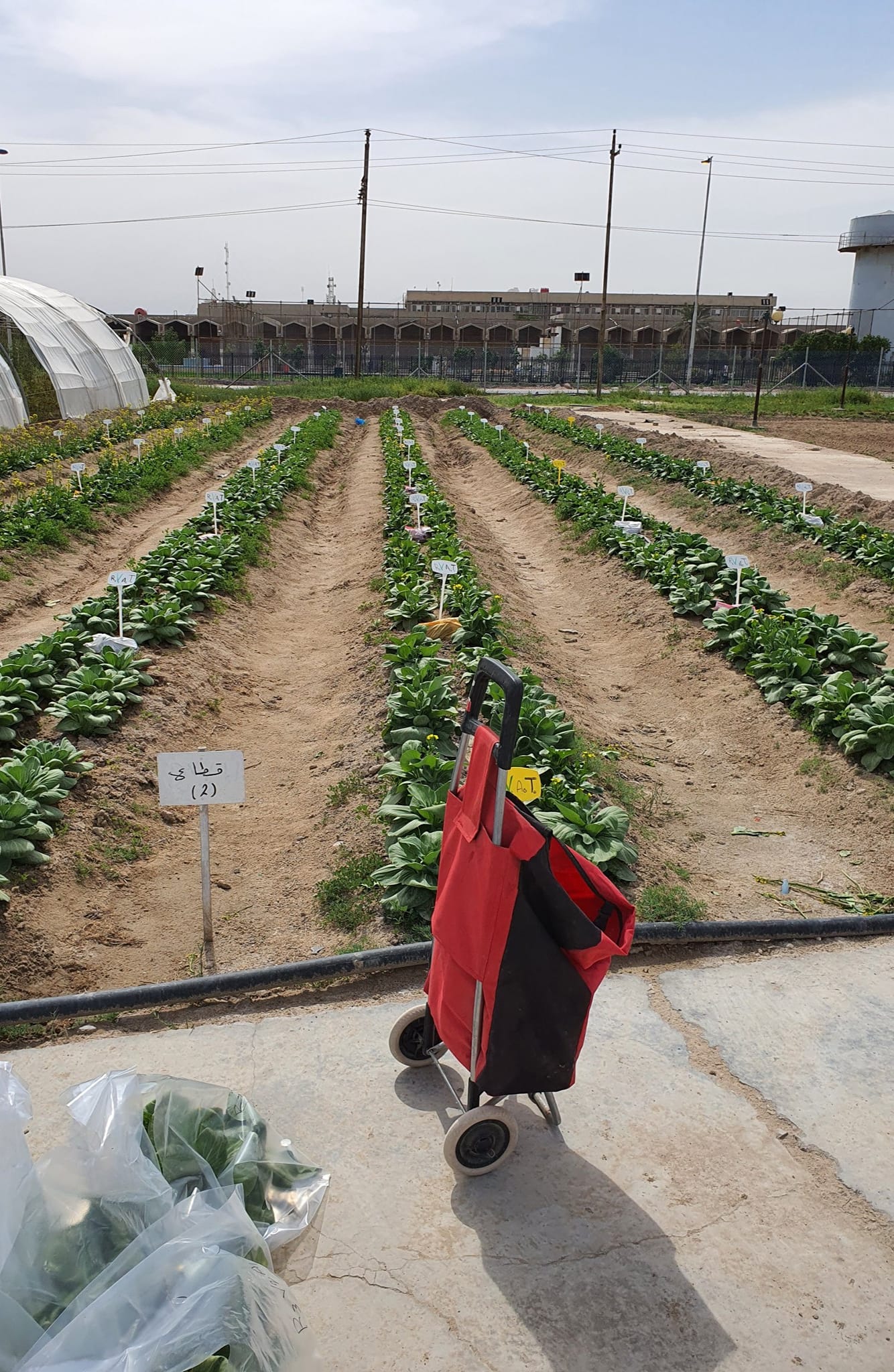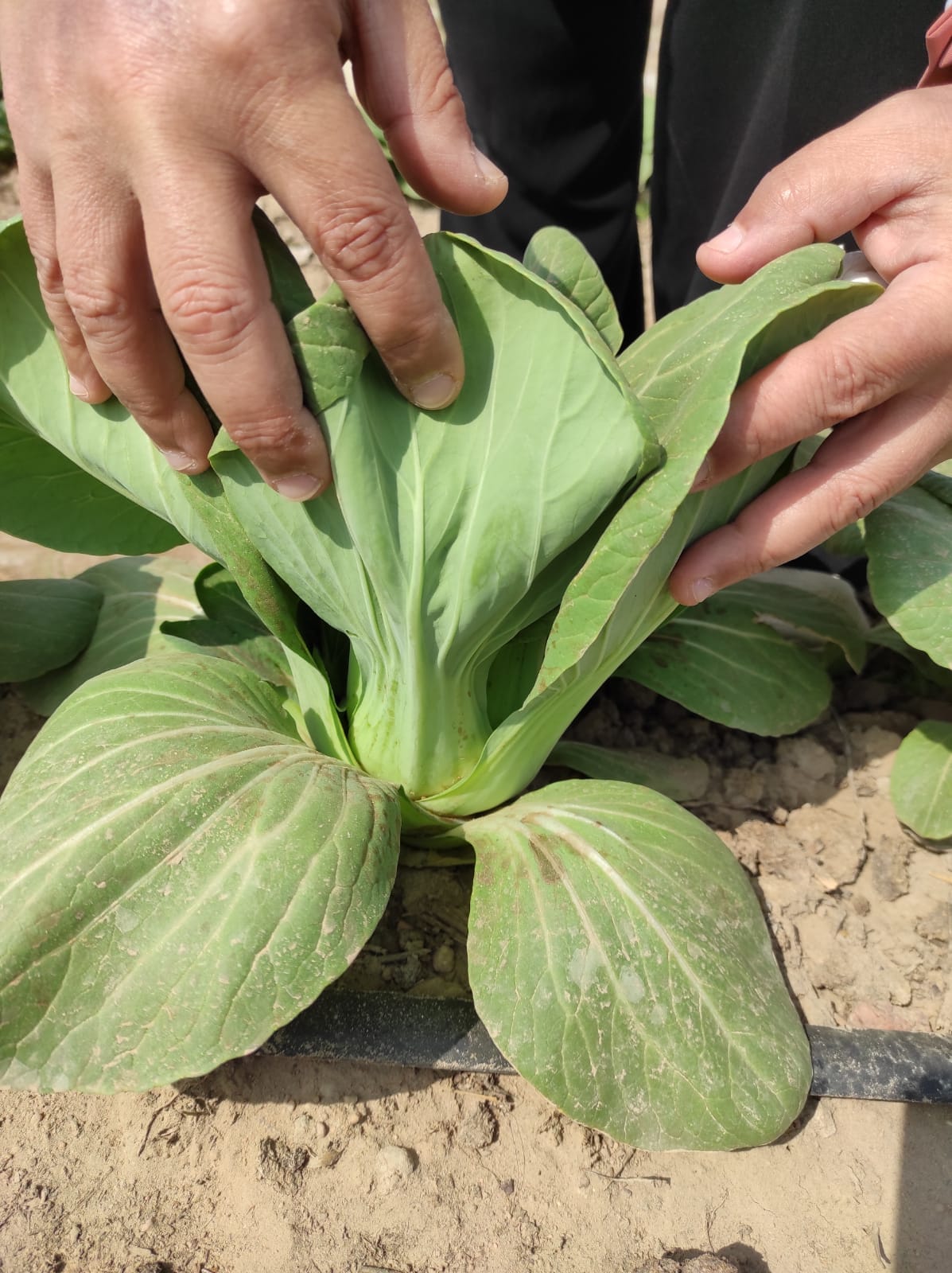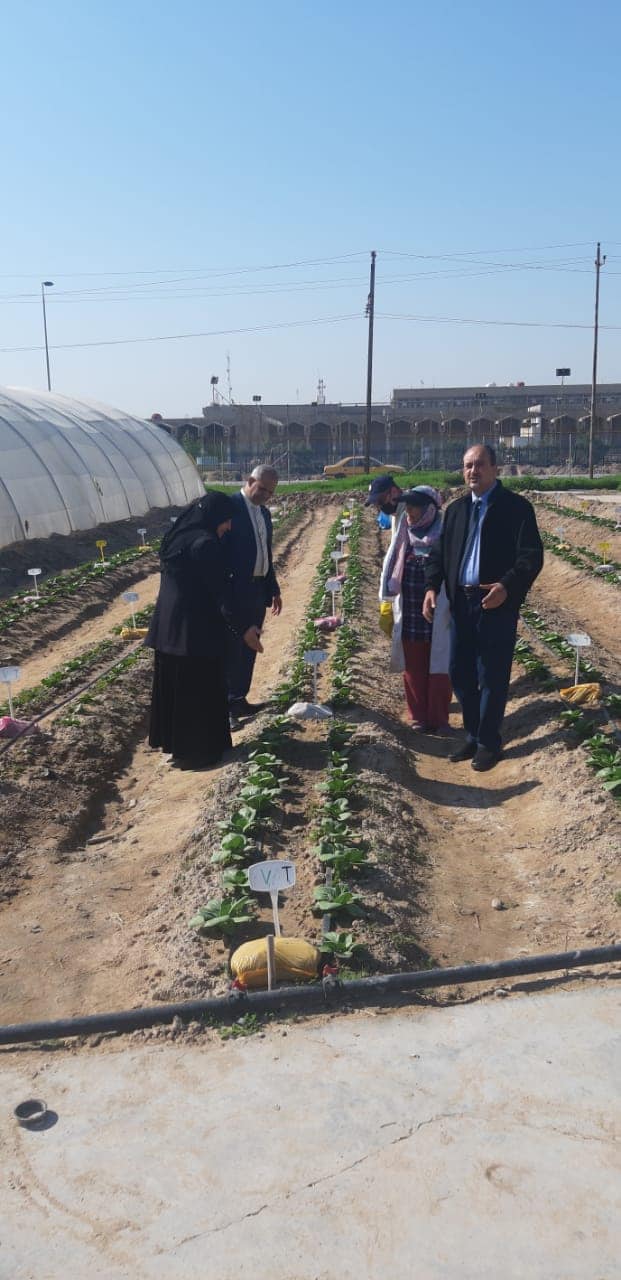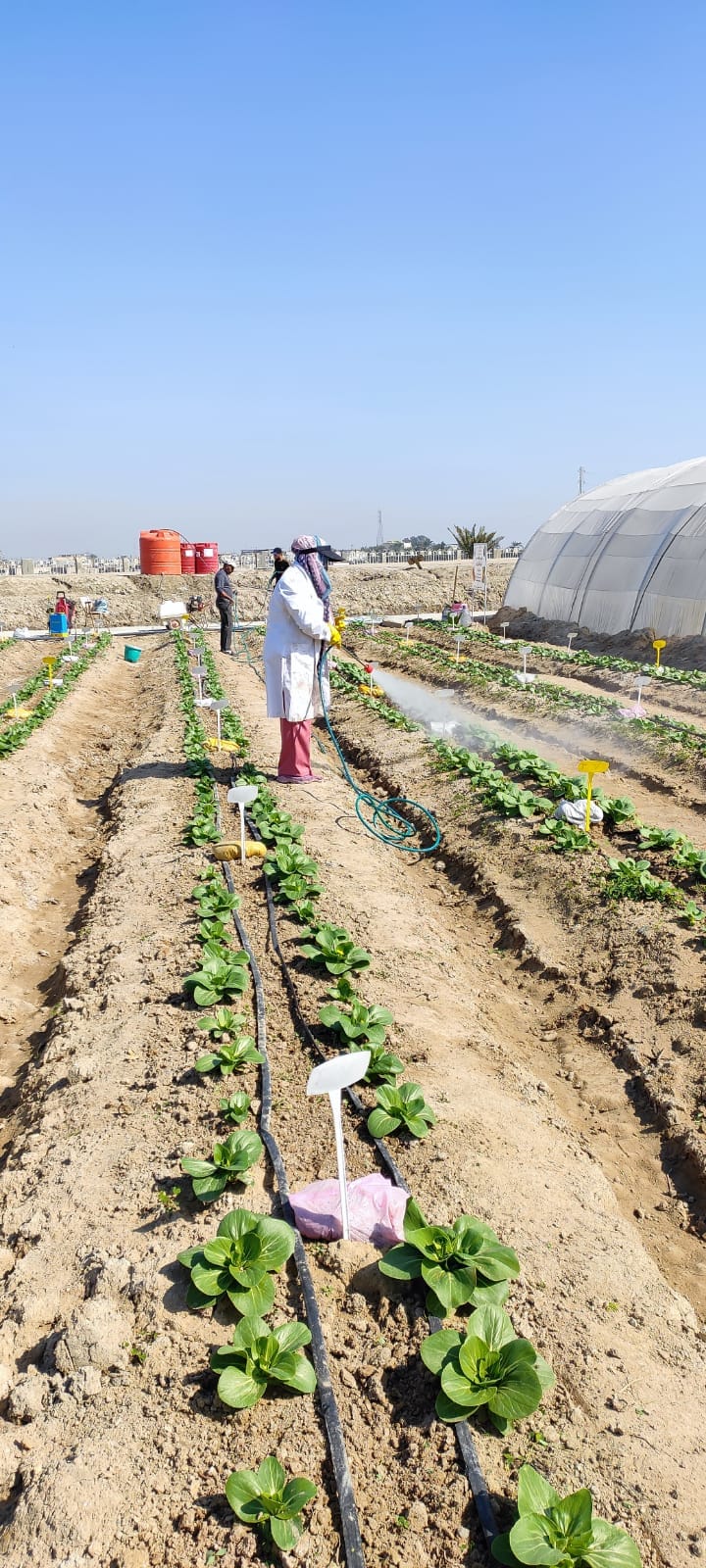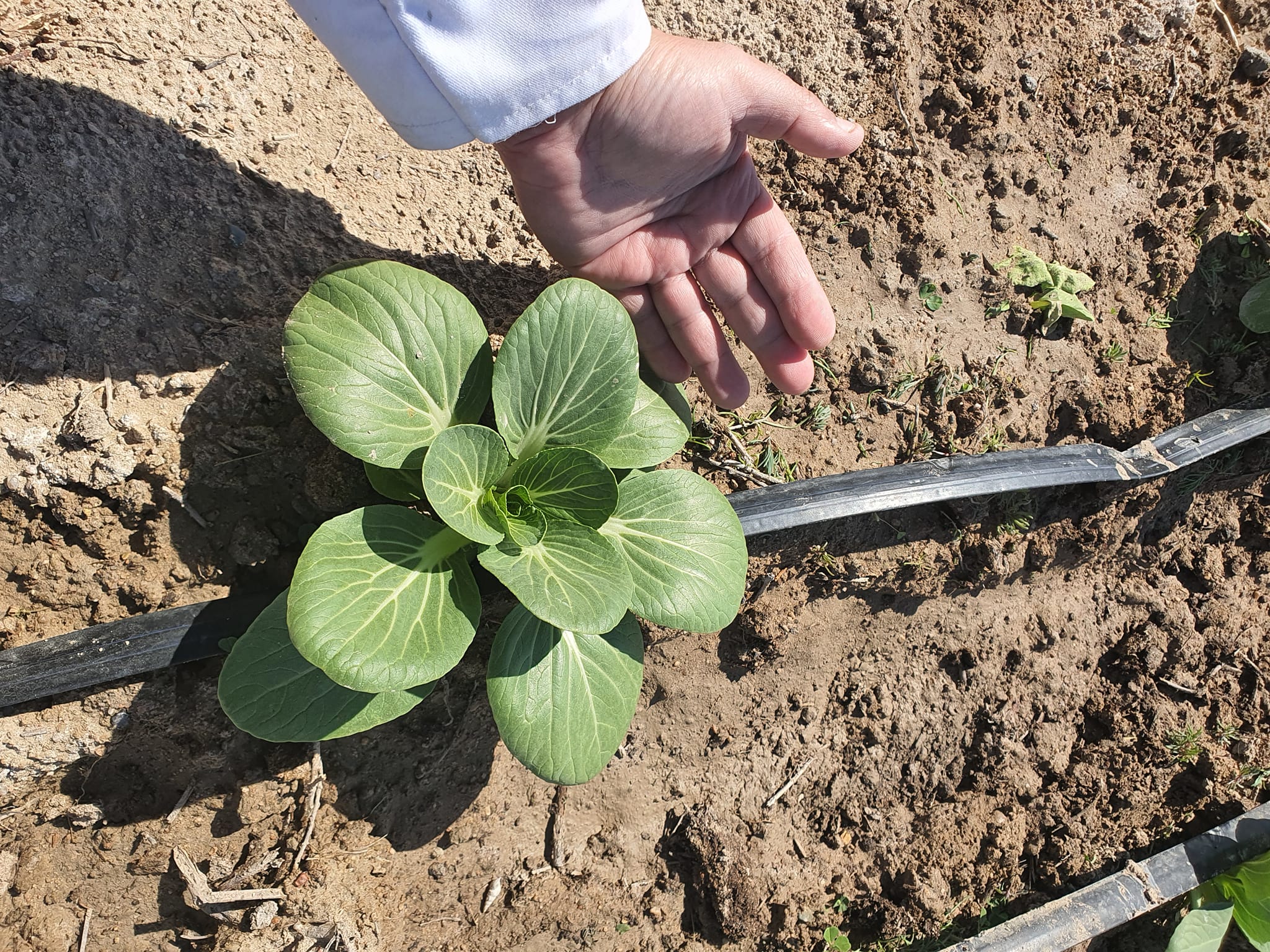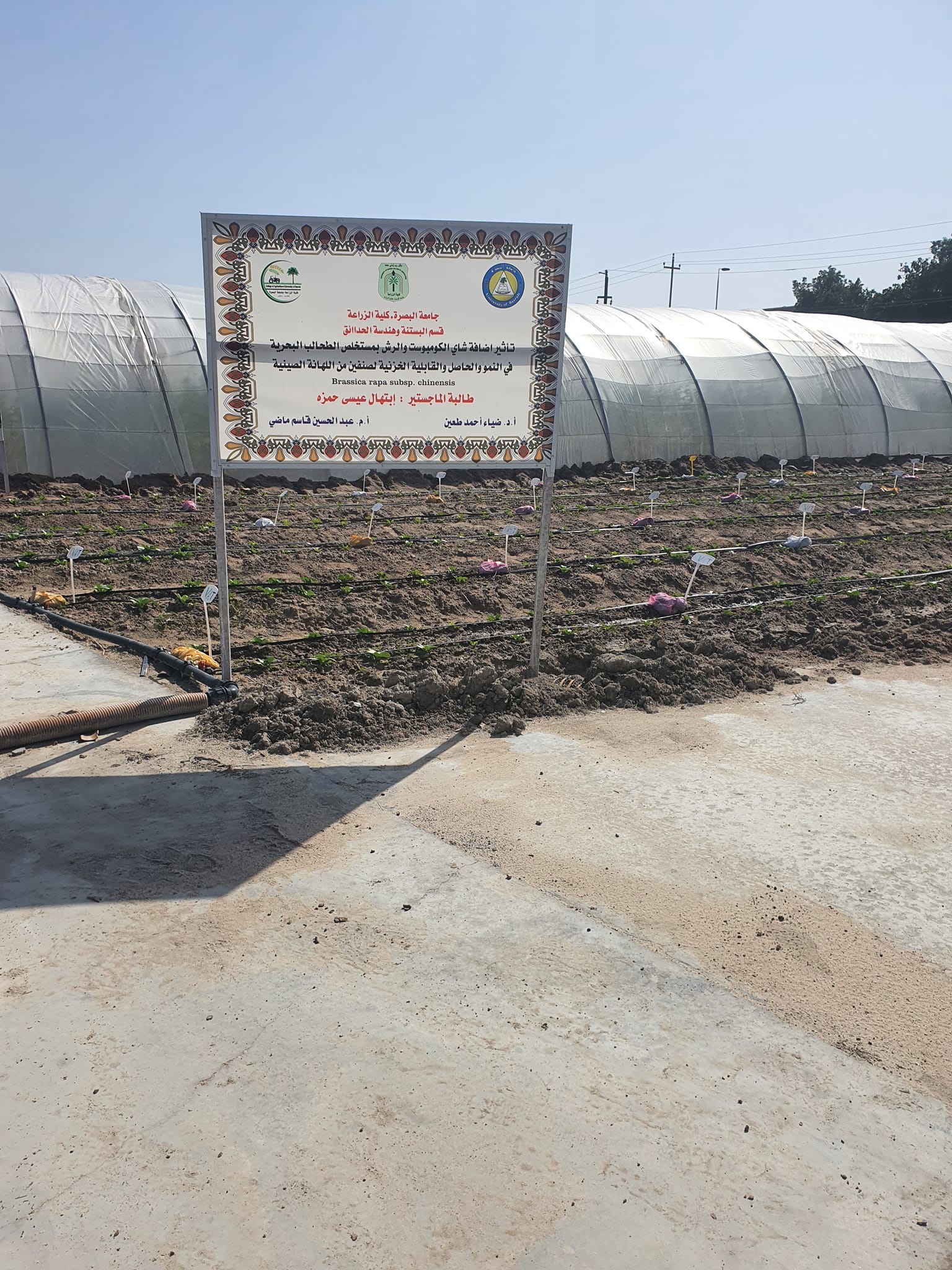
The College of Agriculture at the University of Basra produced, for the first time at the research level, the Chinese bok choy plant of two different varieties with high productivity and tolerance to the environmental conditions of Basra Governorate, using organic treatments that serve the environment, including compost and seaweed extract, in different concentrations, and determining the extent of their influence on growth, yield, and storage capacity of the plant.
The product will be displayed at the flower exhibition throughout its days.
BoK Choy Bok Choy (Chianesis) Brassica rapa subsp Chianesis is a type of Chinese Chianesis, descending from the cruciferous family, which includes vegetables such as: Brussels Chianesis, Brassica rapa, broccoli and cauliflower. This type of Lahana differs from the traditional types of Lahana in that it does not form a head when it grows, but rather grows in the form of clusters of closely packed leaves that closely resemble mustard leaves. This type of vegetable contains a small amount of calories, and because it is rich in many important nutrients, it may have many potential benefits, such as: maintaining eye health, strengthening the body’s immunity, and strengthening blood circulation.
Nutritional content of bok choy
Each cup of grated bok choy (about 70 grams) contains the following:
9.1 energy calories
66.7 g water
1.05 gm proteins
0.7 gm dietary fiber
73.5 mg calcium
0.56 mg iron
mg 13.3 magnesium
mg 25.9 phosphorus
Sodium 45.5 mg
0.133 mg zinc
mg 0.111 manganese
0.35 micrograms selenium
31.5 mg Vitamin C
0.35 mg niacin
46.2 Follett
IU 3130 Vitamin A
0.136 mg Vitamin B6
31.8 micrograms vitamin K
The most important potential benefits of this type of vegetable:
1- Cancer prevention
Bok choy belongs to the cruciferous family of vegetables, which may have many potential benefits in the field of fighting cancer. It also contains a group of important nutrients in fighting cancer, such as: folate, vitamin E, beta-carotenoids, selenium, and dietary fiber, so eating this may help. This type of vegetable reduces the chances of developing some types of cancer, such as colon cancer and prostate cancer, due to the potential ability of the mentioned substances to:
* Repairing DNA that may have been damaged for some reason, which may help reduce the chances of some cells containing damaged DNA turning into cancer cells.
Reducing inflammation in the body, which may help slow the growth of tumors. *
Cleansing the body of some harmful substances that may cause cancer. *
2- Improving bone health
One of the most prominent benefits of bok choy is those related to bone health, as eating this type of vegetable may help improve bone health and strengthen them, and the benefits of bok choy in this regard are mostly due to the following:
* It contains good proportions of some minerals that may help prevent osteoporosis, such as: iron, zinc, magnesium and calcium.
* It is rich in vitamin K, which may help reduce the chances of bone fractures with age.
3- Improving cardiovascular health
Bok choy may have many potential benefits for the heart and blood vessels as well. Eating this delicious vegetable may contribute to the following:
* Strengthening the heart, because it contains folic acid and vitamin B6, which are two important nutrients for heart health.
Reducing blood pressure levels, because it contains potassium, which may help regulate blood pressure. *
* Strengthening and improving blood circulation in the body, because it contains a good percentage of iron, which helps improve the production of red blood cells.
4- Improving blood sugar levels
Like other members of the cruciferous family, bok choy may have a positive effect on blood sugar levels, as eating this type of vegetable may help maintain blood sugar within normal levels, and this potential benefit of bok choy may be especially important for diabetics.
However, it must be noted that the studies that have shown this type of potential benefits of bok choy are still not sufficient to confirm this benefit
5- Other benefits
This type of vegetable may have many other potential benefits, such as:
Strengthening the immune system, because it contains selenium, which may help stimulate the production of immune T cells. *
* Improving skin health and enhancing collagen production, due to the richness of this type of vegetable in vitamin C, which is important for the skin
. Reducing the chances of developing some eye diseases, due to bok choy being rich in vitamin A, which is beneficial to the eyes*
Harmful effects of bok choy:
These are some of the potential harms of this type of vegetable:
* Problems related to blood clotting, so it is preferable to consult a doctor before eating bok choy by people who take medications that help blood clotting.
Possible damage to the thyroid gland, especially when eating bok choy raw and in large quantities, so it is preferable to eat it cooked *
How can you introduce bok choy into your diet?
You can obtain the potential benefits of this type of vegetable by introducing it into your diet with different recipes, as follows:
* Stir chopped bok choy leaves with a little sesame oil, ginger and garlic over heat until the ingredients wilt, and use them as a nutritious side dish.
Chop the bok choy and add it to the soup just a few minutes before it's done. *
* Cook the bok choy a little, then cut it and add it to a dish containing the following ingredients: rice, chopped carrots, chopped cucumber, a little lemon juice and fish sauce, a little garlic and chopped chili pepper.


